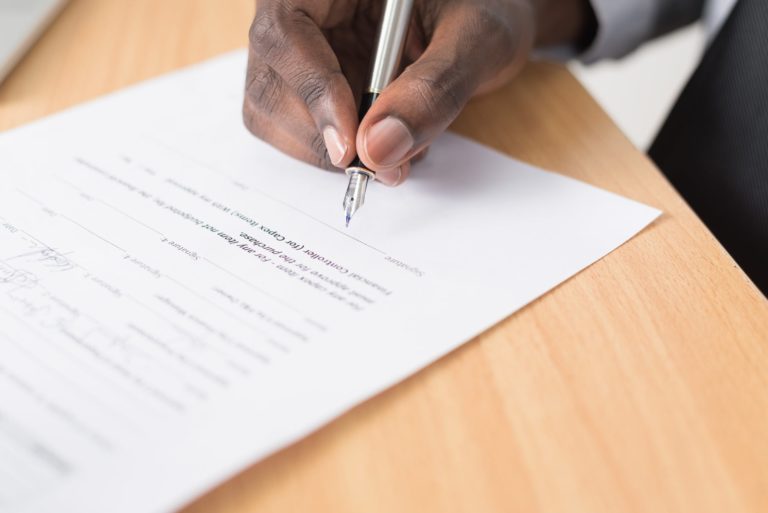
Should I Be Paying with Personal Checks?
More than 14.5 billion checks, totaling $25.8 trillion, were written in 2018, according to the Federal Reserve. Although that number has decreased by about 7% every year since 2015, checks are still being written by Americans, including seniors.
Money Talk News’ recent article entitled “Is Writing a Check Still Safe?” says that in an era of identity theft and bank fraud, how safe is writing a check? Remember, when you pay by check, you are handing a piece of paper with your bank account number and other personal details like your name and address, to another person. This is often a complete stranger! Checks can be forged, and identity thieves could steal your personal and banking details from a paper check. Let’s look at what you need to know about writing a check in 2021 — and how to minimize your risk.
Banks apply security measures, like watermarks and gradient backgrounds, to prevent checks from being reproduced by fraudsters. This also lets financial institutions and businesses validate paper checks easily. In 2018, measures such as these prevented 90% of attempted fraud, according to the American Bankers Association. Nonetheless, check fraud—which includes forgery, theft, and counterfeiting—accounted for $1.3 billion that year.
Know that the risk of trouble increases, if you don’t specify a recipient on the check. If you write a check to “cash,” anybody who gets a hold of it could cash it. If you need cash, it’s safer to use your debit card at an ATM or visit your bank and write a check out to yourself.
Seniors are more likely to still write paper checks, and because the elderly are more likely to be the targets of financial fraud than the general population, check-writing can compound their risk. Here are some steps you can take to safeguard your information and reduce your risk of fraud:
- Complete the “payee” line in full, along with the current date on every check you write in ink.
- Restrict the information pre-printed on your check to just your name and address, and don’t include your birth date, phone number, or driver’s license number. If a merchant requires these details, you can always write them in.
- Keep your checks in a safe place, not in your purse or briefcase, which can be lost or stolen; and
- Watch your bank account activity regularly. By keeping an eye on your finances, you also reduce your risk of fraud.
Even if you prefer paying electronically, you probably shouldn’t dismiss checks altogether. There are small businesses that still don’t accept debit or credit cards. If they do, they might charge a fee for it.
Checks also offer a paper trail, so they’re usually preferred for a down payment on a home or an IRS tax bill. Therefore, if there’s an issue, you’ll have a copy of the deposited check and a record of when payment was made, received and applied.
Of course, no payment method is 100% fraud-proof. However, with proper handling, checks are an extremely safe method of banking, as they have been for many years.
Reference: Money Talk News (Feb. 17, 2021) “Is Writing a Check Still Safe?”


